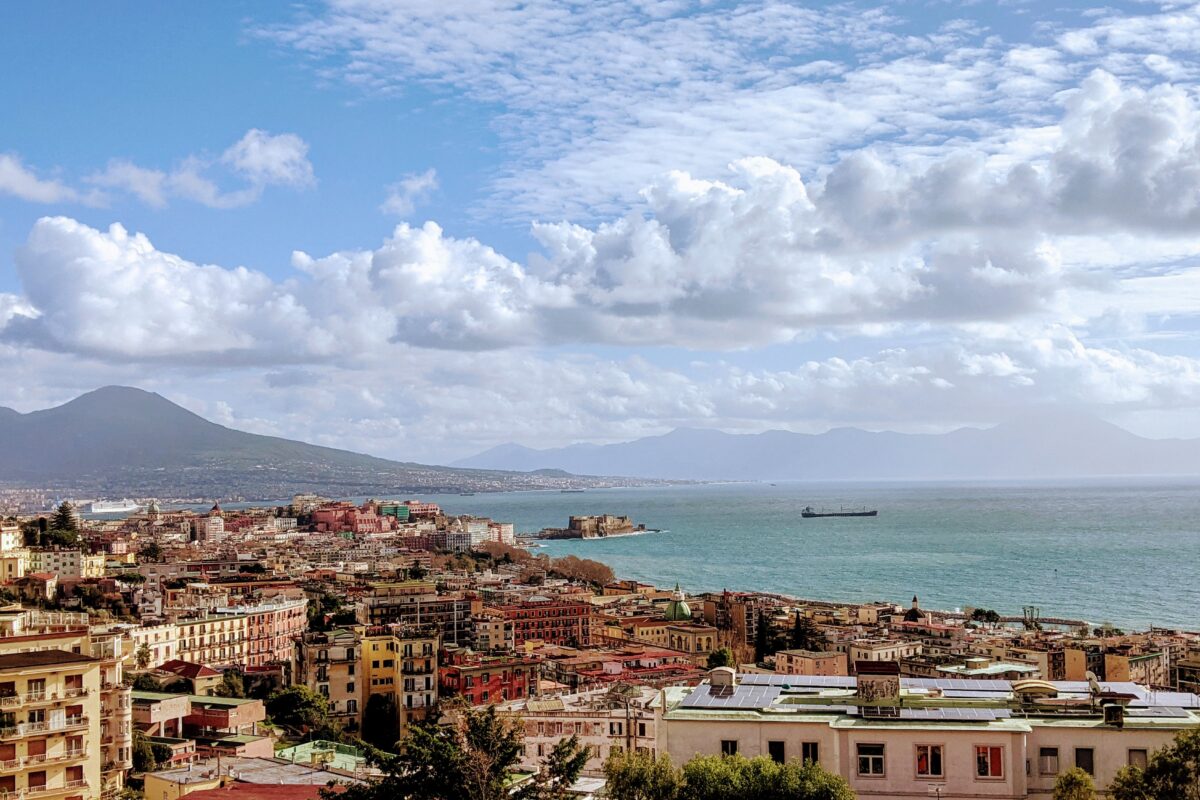Arianna Avalle was first introduced to the novels of Elena Ferrante, the pseudonymous Italian author whose work has sparked a worldwide phenomenon, while finishing her undergraduate degree in marketing at Texas Tech University. A professor of Italian studies encouraged Avalle to pick up the Neapolitan novels, Ferrante’s famous quartet, and unknowingly changed her life.
“She was the first one who asked, ‘Have you read these?’” said Avalle, a native of Verzuolo, Italy. “And I hadn’t, because I used to read more English and American literature to work on my English, so I was behind on Italian books. But after I read the first one, I was so hooked that I knew I needed to do something with them. I needed to help spread the Ferrante fever!”
Several years on, Avalle’s spreading that fever far and wide. Now a doctoral student in Italian studies at UT Austin, she’s published an article assessing the impact of Ferrante’s fame on tourism to the Neapolitan region, where the famous quartet is set, and is incorporating her interest in Ferrante into her dissertation. She’s also teaching a course on Ferrante this fall, “Ferrante Fever: Lit, Film and TV.”
The class is one of the French and Italian department’s Italian Civilization, or ITC, courses, which are taught in rotation by the department’s graduate students. The aim is simple: Introduce students to the world of Italian culture and literature beyond noun endings and tense changes. Avalle’s course focuses on Ferrante’s books, particularly on the first Neapolitan novel, My Brilliant Friend. It also gives students a tour of Ferrante’s other writing, as well as of some of the media that has emanated from her books.
The syllabus includes episodes from the HBO adaptation of the Neapolitan quartet, the first three seasons of which are available now; literary analyses of the novels; another Ferrante novel, The Lost Daughter, which has been adapted into an Oscar-winning film; and even fan-made TikToks. It will also push beyond the novels to understand the wider context in which the books are set. Naples being Naples, that means taking a hard look at the historical reality — and fictional depictions — of organized crime in the region. There’s also the complicated political history of Italy from the 1950s, when the two protagonists of Ferrante’s novels are growing up, through to the 2000s, when the quartet concludes.
Ferrante’s work explores the complications, good and difficult, of female friendship and mother-daughter relationships. Those themes run through Avalle’s class as well: Students are asked to bring examples to class of female friendships in literature and will be introduced to Italian feminist scholars whose influence on Ferrante’s work is unmistakable.
Friendship, or at least creative collaboration, is important to the class in another way. Inspired by The Ferrante Letters, a recent book of criticism about Ferrante’s novels that was co-authored by four literary critics and friends, Avalle is asking her students to engage in a practice called collective criticism. It asks critics (or student-critics) to work in direct dialogue with each other; in Avalle’s class, that means students are asked to write each other letters sharing their impressions of the class materials, asking questions, and building arguments.
“I want students to use their critical thinking skills, but also to have this really collective experience in the class,” Avalle said. “So, every week they’re going to be paired up with a brilliant friend, another student, and they’ll be asked to reason together, write back and forth, and learn to work collaboratively, critically, and creatively.”
Avalle is excited to introduce her students to the nuances of 20th-century Italy, but she’s more excited to introduce them to a new way of thinking about cultures outside their own.
“I think Ferrante really helps open up your worldview and expand your horizon,” she said. “It helps you think about your place in the world, what is your identity, what are your origins. It makes you think not only about women’s issues but also your own position, what you can accomplish with your skills, what you can make of the place you were born into. For these students, it’s a way not only to read a fun and pleasurable novel with a lot of drama, but also a way to reflect on themselves and their world.”

